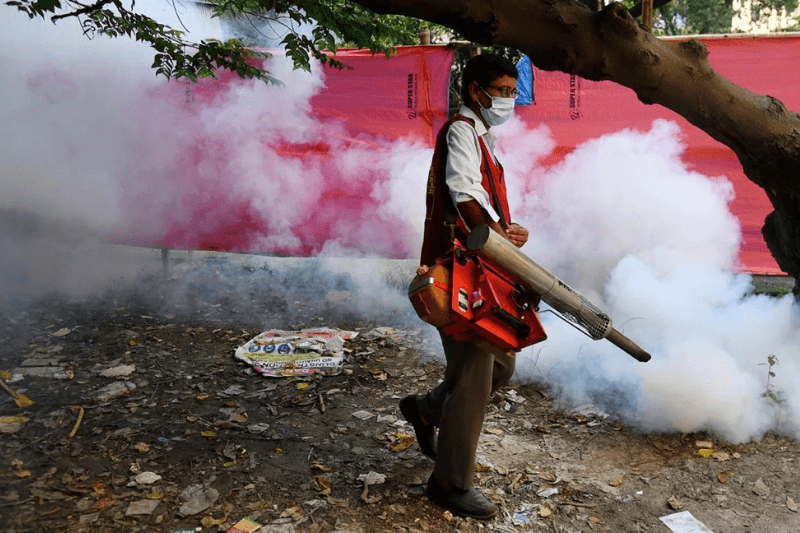
As Earth Heats Up, Bangladesh Reports 1,017 Deaths In Worst Ever Dengue Outbreak
Since January, more than 1,000 people have died from dengue in Bangladesh’s worst outbreak on record, with infections rising over 208,000, official data shows.
In the past, outbreaks had generally been confined to densely-populated urban centres like the capital Dhaka – home to more than 20 million people.
But as the planet warms up due to climate crisis, more cases of the mosquito-borne disease have been reported away from dense urban centres for the first time.
Dengue Outbreak Straining Bangladesh’s Healthcare System
Fatalities from the record outbreak are almost four times higher than last year, when 281 people died. September alone recorded 396 deaths and more than 79,600 reported cases.
The influx of patients has strained Bangladesh’s healthcare system and hospitals have been raising concerns over a shortage of beds and staff, local media have reported.
There is also deepening fear about the outbreak spilling into the cooler months. Last year, dengue cases peaked in October with most fatalities reported in November.
Keep Reading
Warmer Temperatures And Heavy Rainfall Creating The Perfect Storm
Dengue, also known as breakbone fever, is endemic in more than 100 countries. According to the World Health Organisation, 100 million to 400 million people become infected every year.
While the viral infection is endemic in Bangladesh, with infections typically peaking between July and September, this year the uptick in cases started toward the end of April.
A prolonged monsoon season that saw warmer temperatures combined with irregular, heavy precipitation created ideal breeding conditions for the Aedes mosquito.
Calls To Make Dengue More Of A Priority
Last month, WHO director general Tedros Adhanom Ghebreyesus said the UN agency is supporting the Bangladeshi government to strengthen surveillance and management.
But there are calls from public health experts in the country to make dengue more of a priority and focus on early detection and access to adequate health services.
Nonetheless, those calls to action are not limited to Bangladesh. As the climate crisis worsens, mosquito-borne diseases will become more common in new regions of the world.



